Frontier Truth of Officer Ulitin
They were the first to take the fight
With this essay, we want to start a series of publications that we would like to unite with precisely these words addressed to the soldiers-border guards. June 22, 2021 will mark 80 years since that terrible day when trouble knocked on every Soviet family.
The country was attacked by fascist Germany. Without a declaration of war, and it was the border troops that had to be the first to enter the battle with the enemy - the active army had not yet been mobilized and had not been nominated directly to the borders. The border guards, as the newspaper "Pravda" wrote on June 24, fought like lions. One of them was Lieutenant Yuri Sergeevich Ulitin.
Yuri was born on January 1, 1918 in the family of an agronomist and teacher in the city of Tver. Immediately after their birth with their mother Nina Vasilievna (nee Vrasskaya), they moved to the village of Feryazkino, 40 km from Tver, where his father Sergei Alexandrovich, together with his brothers Alexander and Vasily, owned a water mill and a sawmill, which they inherited from their father.
In 1925, the new government confiscated the mill and sawmill, and at the same time the two-story brick house as private property. The brothers dispersed in all directions. And his father got a job as an agronomist at a state farm - Sergei Aleksandrovich graduated from an agricultural school in 1918 and was a sought-after specialist.
But that's why I had to move often. In 1932, the family moved to the Kuban, to the village of Tbilisskaya, between Krasnodar and Kropotkin, and there Yuri graduated from the eighth grade, where he fell in love for the first time.
During the summer holidays, as a rule, Ulitin Jr. got a job: in a tractor brigade, on a harvester, or to fish with fishermen. I learned a lot. Then in life all this was useful to him.
In 1934 the family moved to Rostov-on-Don. Yuri finishes high school and enters the Faculty of Physics and Mathematics at the Pedagogical Institute. In 1938, he was already passing the last exams for the second year, when the unexpected happened.
Passing by the military registration and enlistment office, Yuri saw a leaflet on the wall, in which it was written that the Saratov border school was receiving young men for further service at the border. And that's all, his measured student life is crumbling. Ulitin's fate was decided!
And he didn’t even know before that such schools existed. He was healthy. As a boy, he loved to run, climb trees, was the champion of the school in long jump, later became interested in French wrestling, could freely swim a fast wide river back and forth.
The next day Ulitin appeared at the military registration and enlistment office and asked to be sent to the school. In July 1938, having successfully passed the entrance exams, Yuri was enrolled as a cadet, received a new uniform and tried on a green border cap. Difficult but unique cadet everyday life began.
At the end of 1939, war broke out with Finland. An order came from Moscow: to release all excellently successful second-year cadets ahead of schedule, giving them the rank of "lieutenant". So on January 4, 1940, at the age of 20, Ulitin became an officer.
A week later he was already in Petrozavodsk. Appointed commander of a rifle platoon in the 7th border regiment. The task of the subunit included the fight against airborne assault forces and sabotage groups of the enemy in the rear of the active army, as well as guarding the road along which the supply of the front went.
The soldiers served in the protection zone of the 80th Porosozersky border detachment, on the section of the state border in the Petrozavodsk direction, and were directly subordinate to the chief of the border troops of the district.
The area on which the platoon had to operate is surrounded by hills overgrown with forest, there are no settlements. Snow up to the waist, not a step without skis. The road was guarded according to the principle of the border guard: a control track on both sides of the roadway, secrets, patrols.
In March 1940, the war ended. The border has moved into the interior of Finland by 40-50 kilometers. The regiment in full force entered the 80th border detachment. At first, the border was guarded at two lines: the old and the new.
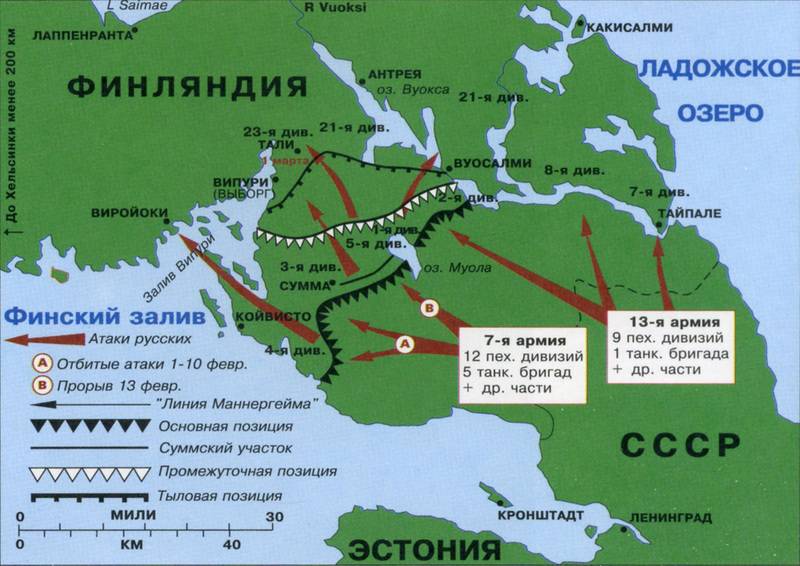
Yuri Ulitin was appointed commander of the economic platoon. All staff workers were subordinate to him: clerks, bakers, cooks, doctors, warehouse workers, and carts. The platoon had about 20 horses.
Before June 22
Before the start of the war, when there was a threat of fascist sabotage groups landing in our rear, a consolidated detachment was formed at the headquarters, in which Lieutenant Ulitin was included. He was appointed platoon leader. The unit was headed by Chief of Staff, Major Theophan Makodzeba. Many staff officers were sent directly to the outposts.
It should be noted that the border outposts in that direction numbered 20-25 people. They were armed with: one Maxim machine gun, 2-3 Degtyarev light machine guns, three-line rifles of the 1891/30 model, grenades: 4 units for each soldier and 10 anti-tank grenades for the entire unit.
The very terrain of Karelia is difficult for the operation of troops: more than 40 thousand lakes, many small short rivulets. River streams often represent a chain of lakes connected by channels. Almost 20% of the territory is occupied by peat bogs, which are often difficult to pass.
The meadows are covered with water, there are few roads, and those that do exist, in many cases, pass through the marshland along log gates. There are many steep rocky hills. There are no boundaries on which defensive structures could be erected near the border. Therefore, parts of the Red Army were concentrated mainly along the railway line, 150-200 kilometers in the rear.
The approach of war was felt by everyone, as soon as enemy aircraft began to violate the border every day, flying deep into Soviet territory. At the same time, cases of breakthrough by enemy reconnaissance groups became more frequent. The guarding of the borders had to be transferred to a reinforced version.
White nights made it easier to observe, but patrols were sent out in the composition of 5-6 people.
The offensive of the Fritzes, and they acted in this sector together with the Finns, began not on June 22, 1941, but a few days later with powerful artillery strikes and raids. aviation to the border outposts. Wooden buildings were burning, but the all-round defense with bunkers, bunkers and shelters in three rolls provided the border guards with the opportunity to repel the first strikes of the outnumbered enemy. Some units had to fight in complete encirclement.
The head of the frontier detachment, Colonel Ivan Moloshnikov, having assessed the situation, ordered the commanders of the outposts to take care of the people and retreat to the rear, avoiding pursuit. Only an outpost under the command of Senior Lieutenant Nikita Kaymanov with an attached reinforced maneuvering group was allowed to act according to the situation. A consolidated detachment led by Yuri Ulitin was sent to help. But on the way, the border guards were stopped by dense mortar and machine-gun fire of the enemy.
It was decided to go on the defensive and, pinning down part of the enemy forces, provide the border soldiers with the opportunity to get out of the encirclement. For two days, the fighters conducted an active defense at the line, and then retreated to the area of the village of Korpiselka.
With the withdrawal of two kilometers east of the settlement, a battle began. It was necessary to detain the enemy on the road leading to our rear, and to enable the Red Army units to occupy the defensive line, which was prepared by sappers and prisoners from local camps.
The border guards took up defensive positions at the edge of the forest. Ahead there is a peat bog about 100 meters wide, which could only be overcome on bellies. If you fail, you will not get out, the depth of the quagmire is about three meters.
The enemy could not bypass the border soldiers: the swamp stretched to the right and left for several kilometers. On the other side there was a dense bush, a swell covered with tall grass, which made it impossible to observe the actions of the enemy. On a busy line, the fighters could not even open cells for prone shooting. A group of border guards led by Ulitin was separated from the water only by grass.
The officer himself with Private Misha Komin, Leningrader Sviridov and another soldier settled down to the right of the road in a young pine forest.
The rest, and only 25 people remained in the detachment - 15-20 meters behind. The soldiers aimed two light machine guns on the road. All took refuge behind bog bumps and tree trunks.
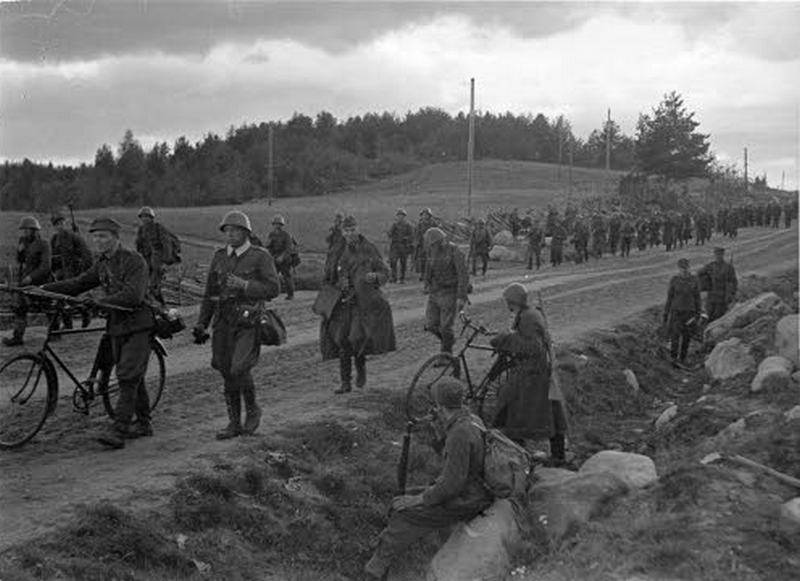
The border guards did not have time to properly take up the defense, the Fritzes appeared on the road. They relaxed, apparently not expecting to meet anyone here. They walked freely, cackling loudly and talking. As soon as the Nazis came to the gate, the border guards opened fire from all kinds weapons... The Fritzes retreated, but few managed to escape.
From line to line
After some time, the Nazis pulled up new units and delivered a strong mortar blow. Tall trees with dense crowns growing around were the first to suffer. Mines burst high above, showering the border guards with cut branches and knocked down foliage.
Enemies made a new attempt to break through the gati under the cover of machine gun fire. They ran swiftly along the road, non-stop scribbling from machine guns. Bullets whistled, I couldn't raise my head. Border fighters responded with bursts of light machine guns.
Suddenly Ulitina called out Misha Komin: “Look, Comrade Lieutenant. Crawling!". He pointed to the tall grass ahead. She swayed as if from the wind, but not entirely, but in places. A head in a helmet appeared from the grass and instantly disappeared.
The soldiers were aiming at the fascists emerging from the grass, and when they were 30 meters away, they used grenades. A messenger crawled up and said that Major Makozeba was calling Ulitina. The officer was sitting on a fallen tree and holding a map in his hands.
- After 20 minutes, the squad will begin to withdraw, - he said. “You and your men must cover us. They must hold out for at least half an hour. Can do more is good, but don't risk it. Get yourself another Heavy. We will be waiting for you in this square. And he indicated the meeting place on the map.
30 minutes! Easy to say, just try four of us. After 20 minutes, the border guards were left alone. To prevent the enemy from discovering the detachment's withdrawal, they did not stop firing continuously.
It took 20 ... 25 minutes. The fascists did not answer. Suddenly, the enemy opened fire from company mortars. Five breaks 10 meters behind, then a series of breaks on the line where the border guards were. Closer, closer. Two mines exploded over the heads of the border fighters.
Ulitin looked around: Misha was lying with a crushed head, Sviridov was also killed, the rest were alive. We got the documents from the killed men from their uniforms and began to retreat. Ulitin fleetingly remembered that Misha kept a photograph of his beloved girl in his pocket and often dreamed of meeting her. Apparently not destiny ...
Two hours later, the border guards met with their own. So from line to line, first alone, and then together with the units of the Red Army, the border guards retreated to the east. In early August 1941, new outposts were formed from the border guards remaining in the ranks.
In battles on the border, Yuri Ulitin distinguished himself. While covering the withdrawal of the consolidated group from the encirclement, he opened an account of the personally destroyed Nazis in the battle near the village of Karpuselka, for which he received gratitude and new buttonholes of the senior lieutenant. Soon the officer was appointed head of one of the outposts of the 80th border detachment.
The second half of 1941 and the whole of 1942 Ulitin participated in battles with the Fritzes who had broken through to our rear, and destroyed enemy sabotage groups. By the end of 1942, he was already a captain, chief of staff of a battalion of the 80th Infantry Regiment, and was awarded the Medal for Military Merit.
All the years, Yuri Sergeevich honestly served the Motherland, was proud of the title of a border guard officer. Leaving Karelia at the end of 1942 to form the 70th Army of the NKVD troops, Ulitin took a green cap with him. And during heavy battles at the Kursk Bulge, she was always with him. Now the descendants of Yuri Sergeevich cherish it. They remember what Colonel Ulitin was like. Each of us should remember this too. Is always!
Among his many military awards, Colonel Ulitin especially appreciated the Order of the Red Star and the first medal - "For Military Merit".
The essay was created on the basis of materials from the Foundation of the Organizing Committee for the perpetuation of the feat of Lieutenant Alexander Romanovsky
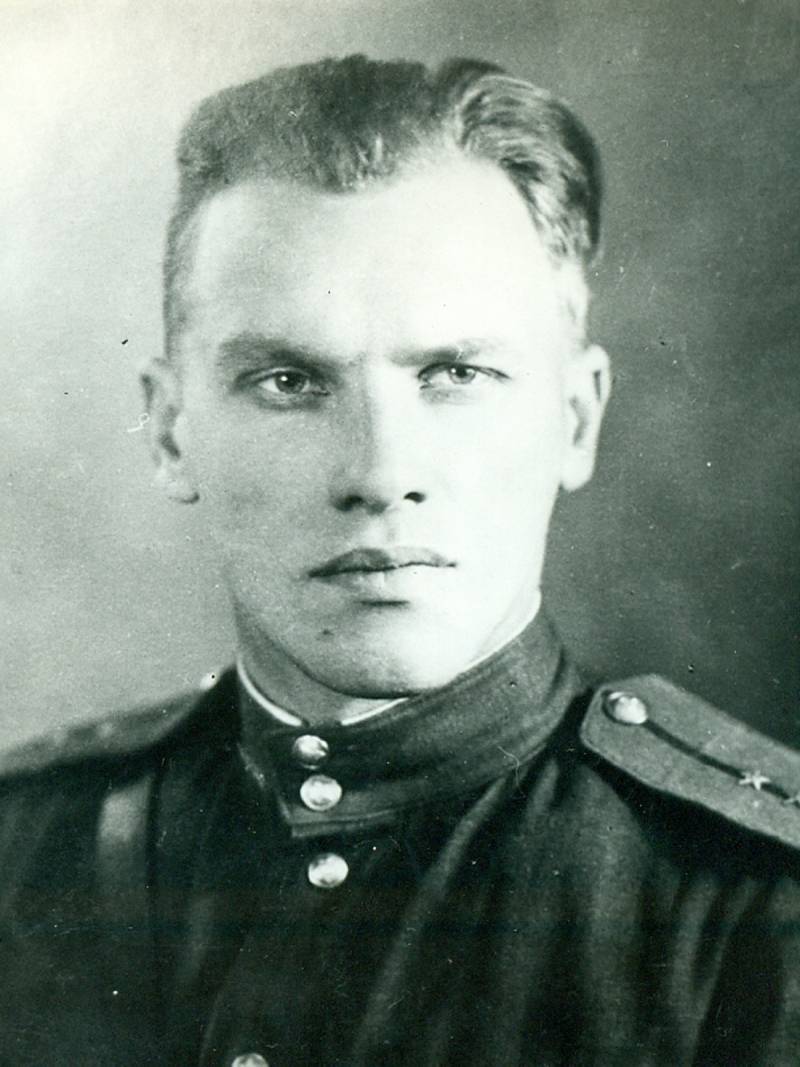
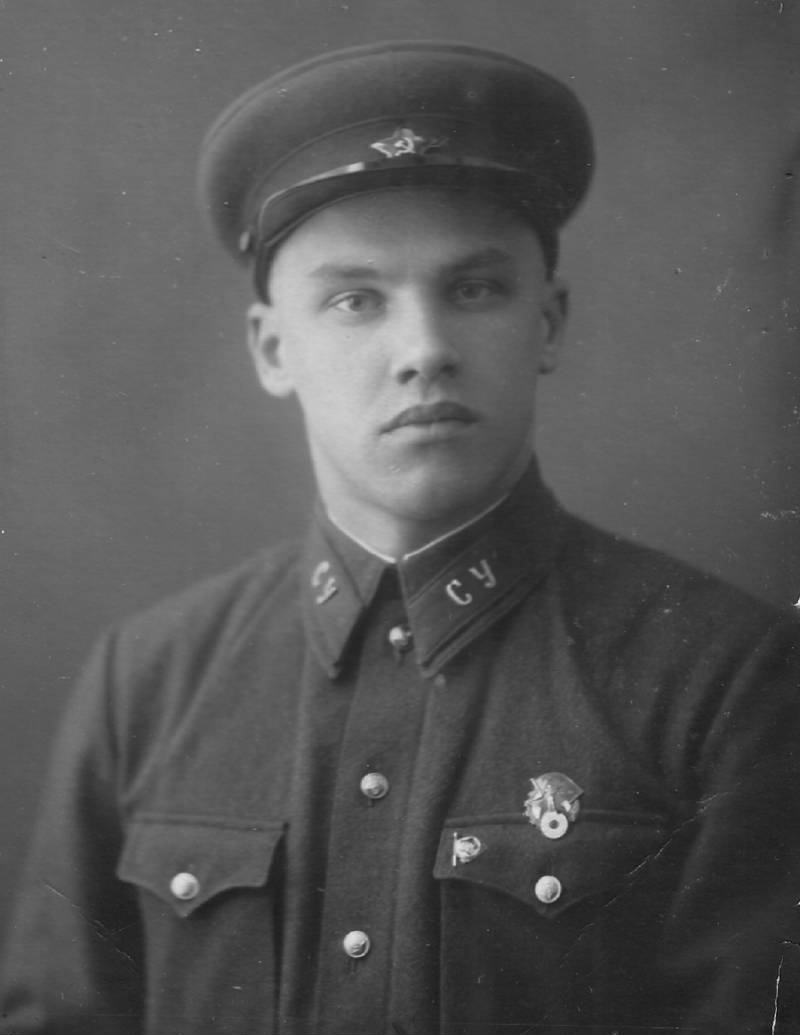
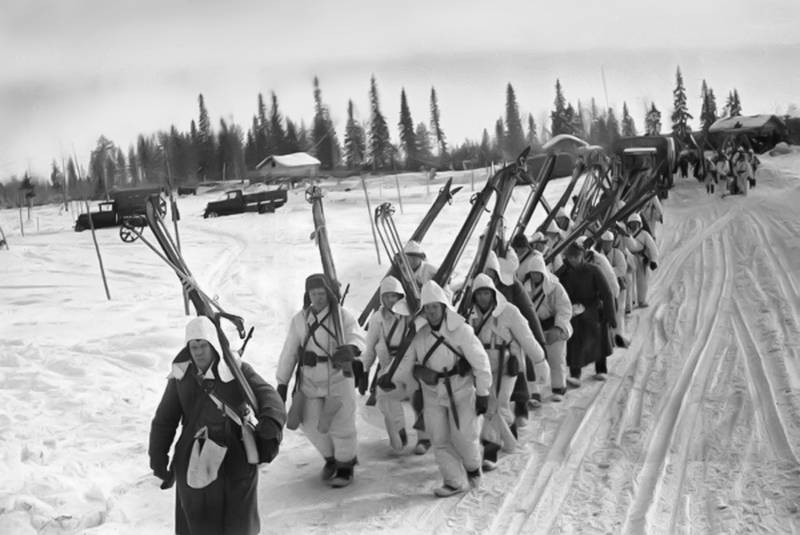
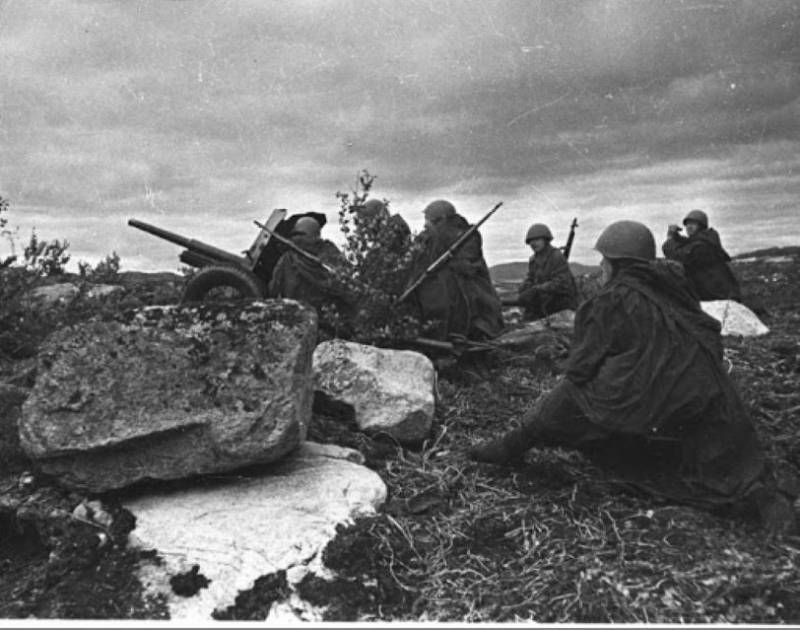
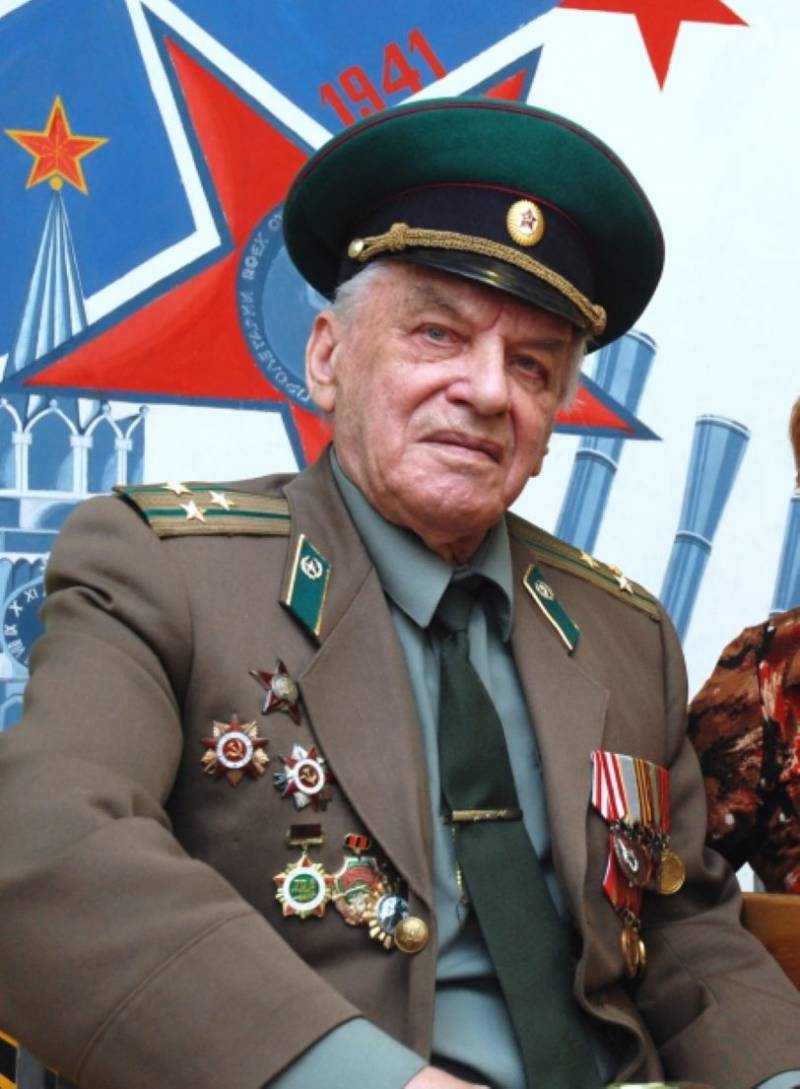
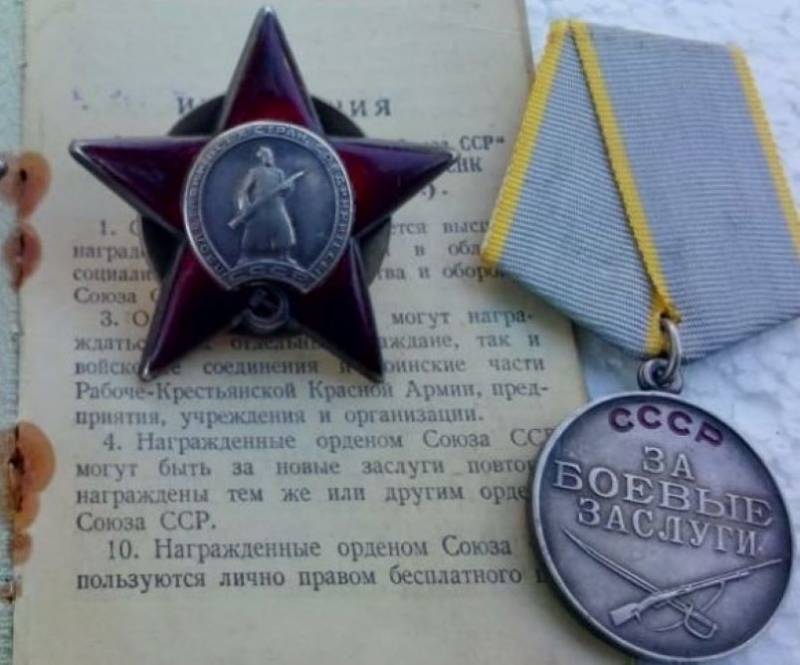
Information